Airlines nowadays generally prefer you to book your tickets directly with them. They will protect your booking if something goes wrong and do their best to get you to your destination.
One thing I like about airline alliances is they’re designed to operate as though they’re all the same airline. You might have one flight on an airline, then connect to another airline to make your destination.
Protect This?
A problem arises when you book separate tickets. Perhaps you chose to use your frequent flyer miles for a flight from London to New York on British Airways and you paid for the next flight on American Airlines from New York to Dallas. Both carriers are in the same alliance.
Logically you might expect that if your first flight was late, meaning you missed your connection, that you would be automatically put onto the next flight. However, as you are on separate tickets, this is sometimes no longer the case.
Varying Rules
There are varying rules when it comes to this. Qantas will protect across separate bookings only if one of the flights is a frequent flyer redemption. This is because it is not possible – on any airline, as far as I know – to combine a frequent flyer miles redemption with a cash ticket.
What Is The Point Of An Alliance Then?
I am one of those people who always books a combination of some tickets with miles and some with cash. The main reason for this is that I am not cash rich or miles rich, so I get to maximise the value of both by doing separate bookings. Also remember, you can’t combine a cash ticket and a redemption ticket, otherwise I happily would.
From a passenger perspective, separate tickets requires me to build in three hour breaks between flights in case of delays and I accept that as a reality of the travel experience.
As a customer, it does not give me a stress free travel experience, knowing I absolutely have to make the next flight, otherwise it will be cancelled and I could be out of pocket for huge amounts of money. This goes against the whole point of an alliance. It also goes against the airlines desire for people to book directly and make their own itineraries.
Overall Thoughts
While this probably only affects a small subset of people, it is very frustrating. The reason behind it is that the airlines don’t want to be liable for hold baggage that doesn’t connect and I get that. However, it used to be a fact that flying in an alliance meant you were essentially flying in one big happy family of airlines who all worked together to get you where you needed to go.
To be fair, some of the airlines will do their best to get you moving, even on separate tickets. Others do not. This inconsistency is annoying and finding out who does and does not is sometimes not easy. I think this is a point that needs to be worked on within alliances. They should provide that seamless experience they all tout in their marketing material.
Have you ever experienced a problem with connecting flights on separate tickets? How was it handled? Thank you for reading and if you have any comments or questions, please leave them below.
To never miss a post, follow me on Facebook, Twitter and Instagram.
All my flight and lounge reviews are indexed here so check them out!
Featured image by Masakatsu Ukon via Wikimedia Commons.
oneworld revolves around you image sourced from here.




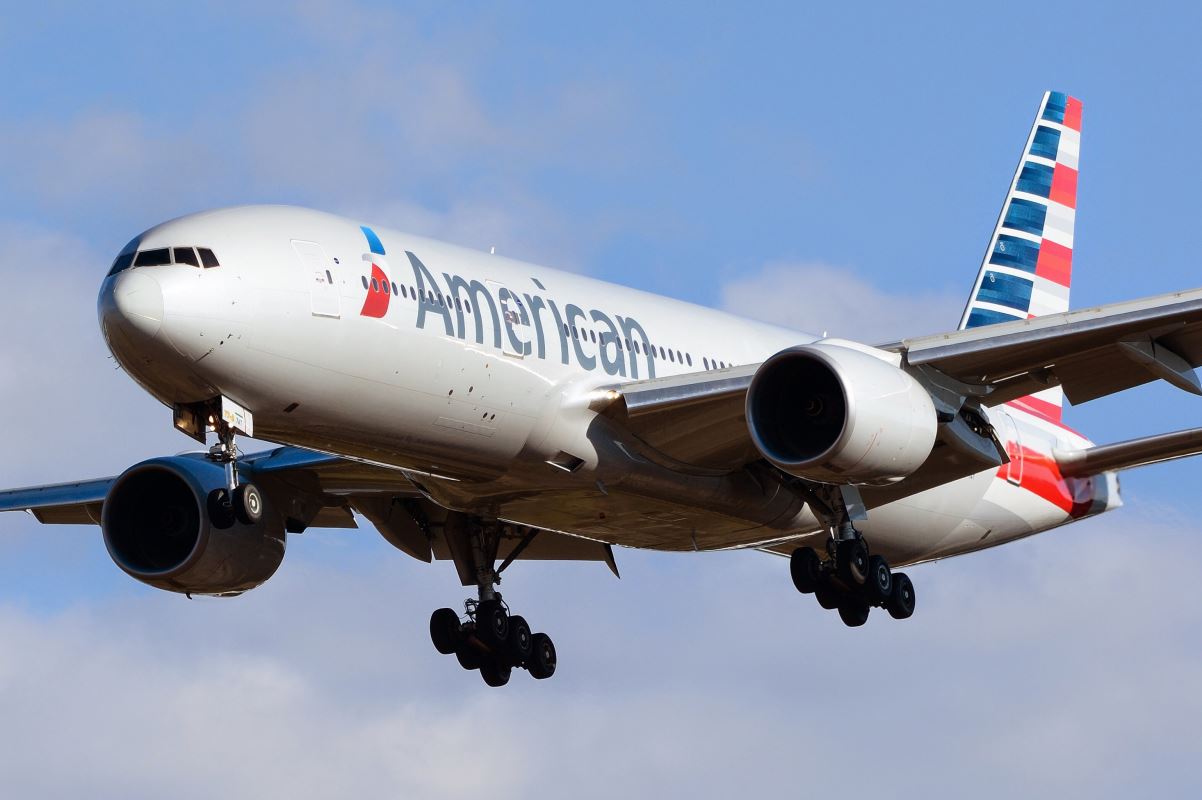

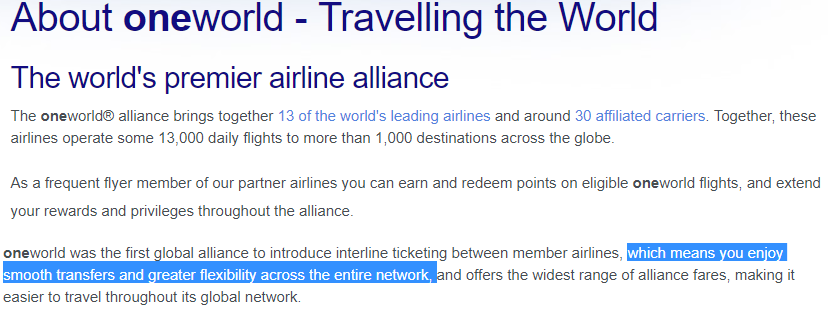

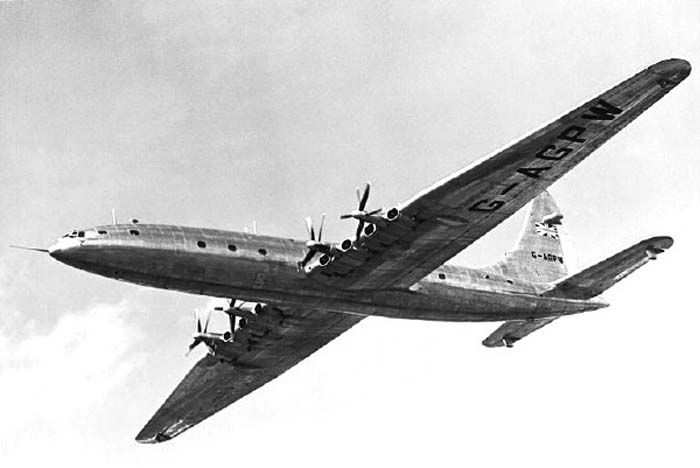
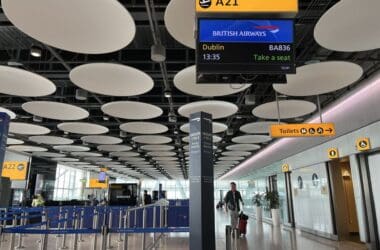


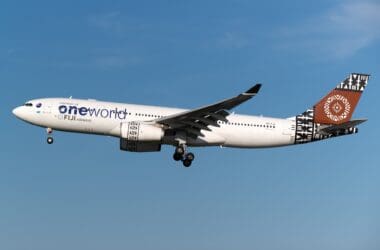

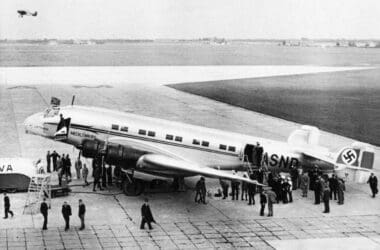
In 2015 missed flight from Dusseldorf to Zurich on AirBerlin. They made me to pay 200Euros for a new reservation, since my ticket was “restricted”. It was late evening, last flight, I had no other options exept stay overnight in Dusseldorf. I could probably get them to put me on the other flight next day, but I had to look for the overnight accommodations. Never took a flight on AirBerlin since the incident.
It’s no good when you miss your flight and you have to pay the extra. Not many people have flown AirBerlin since, as they have gone out of business now. Thanks for the comment!
We had quite the issue 2 years ago. Booked JAL biz class tickets using AA miles. Full itinerary: NYC to PEK to TYO to HNL to NYC. First up: PEK; flight left JFK and had a 1 hour connection in Tokyo before heading onto PEK. We’d stay less than 48 hours in PEK (adhering to the 48 visa free transit rule) and then onto Tokyo…aka NYC to PEK to TYO. Great! Booked all this over the phone with AA Platinum desk and was told itinerary was 100% valid and adhered to all routing/regulation rules (they knew we didn’t have a visa for PEK). Confirmed this 3 times and was told they even checked our itinerary with JAL and we were set.
Get to PEK and denied entry into country because they claimed we came from Tokyo (we didn’t, we had a 1 hour connection in TYO airport) and they said the rule is you cannot go from TYO to PEK to TYO and we would have to either change the country we went to after PEK or we couldn’t enter PEK.
Despite taking our miles to book flights on partner airline JAL, AA wanted to take NO ACCOUNTABILITY for this disaster.
What’s the point of redeeming miles if you can’t get to a destination?
Yikes, that’s really not very good at all. What a shame you got hit by the Visa rules – sometimes it can be a technicality that prevents you doing what you want to do. Sorry to hear you had such a bad experience and thanks for the comment!